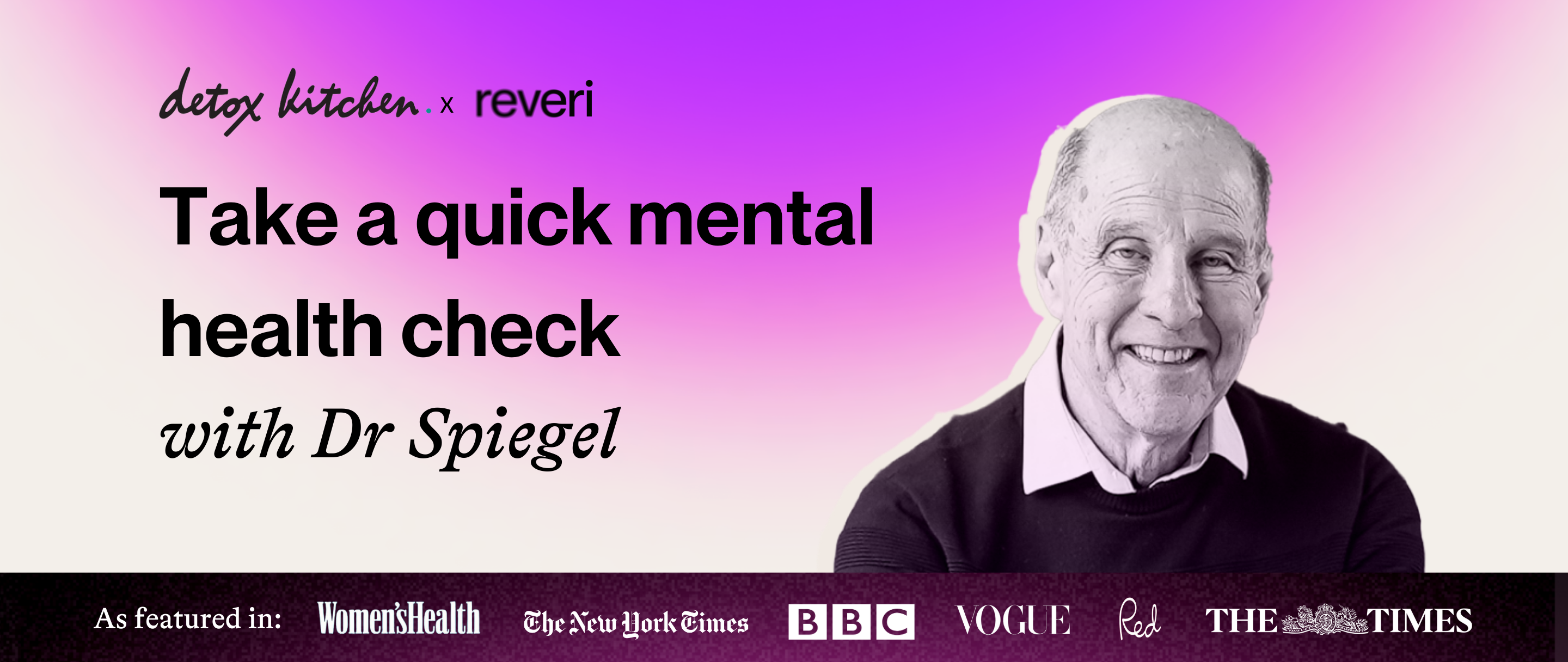16 Aug, 2024
The Interconnectedness of Metabolism and Mental Health with Reveri
In recent years, there’s been a growing awareness of the intricate relationship between metabolism, stress, and mental health. This connection is far more than just theoretical; it's an integral part of how our bodies and minds interact daily. We spoke to Reveri, the app that offers self-hypnosis programmes, to dive into the connection between metabolism and the mind and how to optimise this connection.
HealthMetabolism—the process that converts food into energy—doesn’t just fuel our physical activities; it plays a crucial role in our emotional and psychological well-being as well. And as we’ll explore, self-hypnosis offers a powerful way to tap into this connection, helping you manage stress and support both your mental and metabolic health.
We’ve long known that chronic stress is a major contributor to mental health disorders like
depression and anxiety. When we experience stress, our bodies activate the hypothalamic-pituitary-adrenal (HPA) axis, leading to the release of cortisol—a hormone designed to
help us manage stress. But when stress is constant, cortisol levels can stay elevated, disrupting our metabolic processes.
A study in The Lancet (Kivimäki & Steptoe, 2018) highlights that chronic stress can lead to insulin resistance, which may pave the way for metabolic conditions such as obesity and type 2 diabetes.
But it doesn’t stop there. Metabolic dysregulation can also worsen mental health conditions. Research published in Nature (Hill & DiBattista, 2020) points out that disturbances in glucose metabolism, for example, can impair brain function, contributing to mental health disorders. Blood sugar fluctuations can affect mood, cognitive function, and energy levels, creating a vicious cycle where poor metabolic health and mental health issues feed into each other.
Addressing this interconnectedness requires a holistic approach that considers both physical and mental health. One powerful tool in this process is self-hypnosis. Studies show that self-hypnosis can reduce stress by promoting relaxation and mindfulness, which helps to lower cortisol levels and regulate metabolic functions. Incorporating self-hypnosis into your daily routine can be a game-changer, not just for your mental well-being but also for your metabolic health. This approach demonstrates the profound impact of integrating mind and body practices for overall health and wellness.
Starting with self-hypnosis
We are excited to announce our partnership with renowned psychiatrist and expert, Dr. David Spiegel, to bring you an exclusive mental health check that he uses with all his clients. This quiz is a helpful check-in tool designed to provide you with personalized insights and guidance for your mental wellbeing. You can also use DETOX20 for 20% off Reveri's self-hypnosis programmes.

Your Challenge: Take this quick quiz to understand your current mental health state and receive a customized toolkit and guide to help you improve based on your results. Whether you're dealing with everyday stressors or facing significant challenges, this tool is here to support you.
The Gut-Brain Connection: Strengthen your gut-brain connection for optimal metabolism with our 5-day Metabolic Refresh, incoporating nutrition, supplements and movement to kickstart a healthier metabolism, providing the resources and foundations for a stronger metabolic rate in the long run. Enter the code METABOLISM with any meal plan to receive 15% off, a comprehensive guide on metabolism, written by experts, ARTAH Metabolic Fix supplements and Pilates by Bel classes and accessories.
Take a proactive step towards better mental and physical health, and a mighty metabolism.
References
- Kivimäki, M., & Steptoe, A. (2018). "Effects of stress on the development and progression of metabolic disorders." The Lancet, 392(10152), 651-664.
- Hill, J. M., & DiBattista, A. M. (2020). "Metabolic disturbances and mental health: The role of glucose metabolism in psychiatric disorders." Nature Reviews Neuroscience, 21(10), 577-589.
- Valentine, K. E., Milling, L. S., Clark, L. J., & Moriarty, C. L. (2019). "The efficacy of hypnosis as a treatment for anxiety: A meta-analysis." International Journal of Clinical and Experimental Hypnosis, 67(3), 336-363. Link



